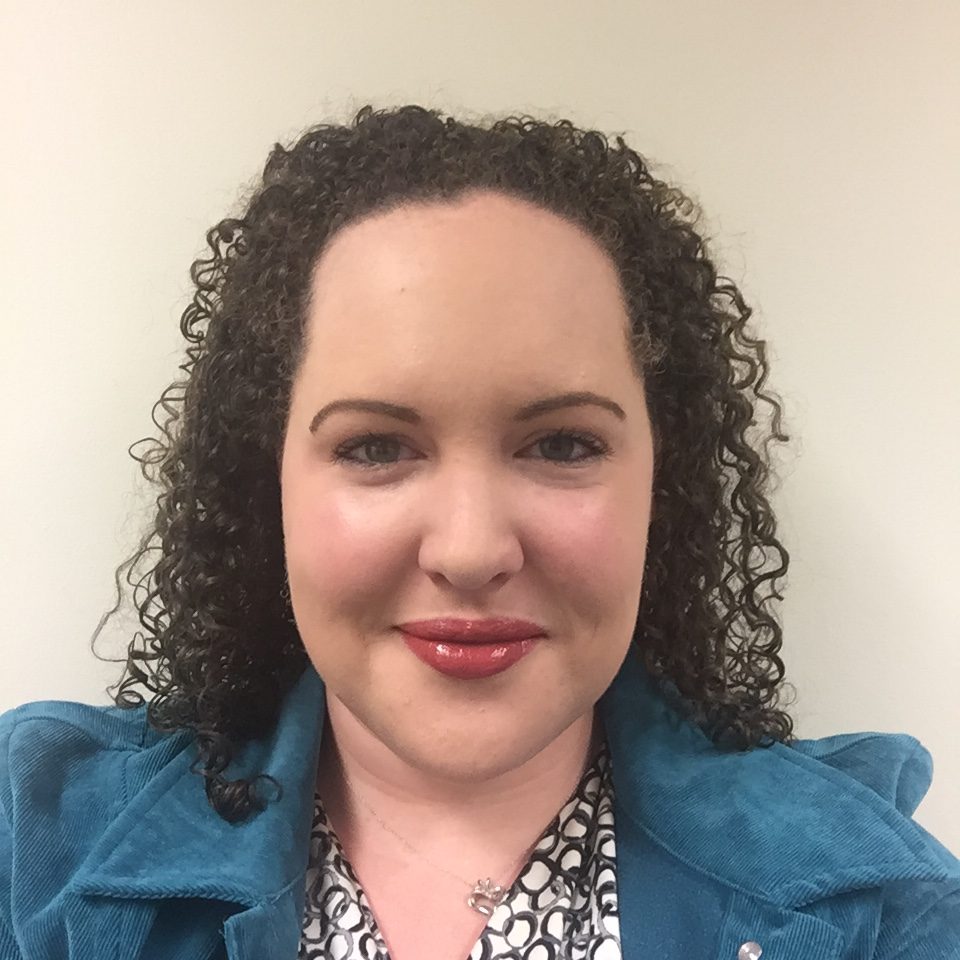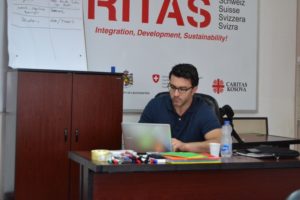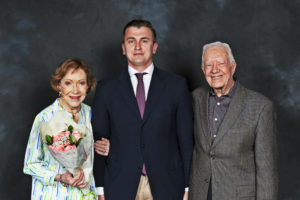Carol Tojeiro is a joint MAIR/MAECN student who will complete a Master of Arts in International Relations and a Master of Arts in Economics. She will be completing an internship at the Organization of American States in Washington, DC this fall.
This summer, I had the opportunity to intern abroad with IOM, the UN Migration Agency, in Ghana. My decision to pursue an internship abroad was to gain practical field experience with an international organization in a development context. During my internship, I had the opportunity to work on migration and child trafficking related issues, and to travel to different regions of the country.
Following the first week of orientation, along with other SU interns, we travelled to the Brong Ahafo region where we interviewed migrants who returned from Libya, Spain, Morocco, Mauritania, Senegal, and Algeria. They shared with us the hardships they faced when travelling irregularly, which we later narrated in the iamamigrant.org Campaign. This campaign, spearheaded by IOM, aims to promote positive perceptions of migrants and to combat xenophobia. During the following weeks, we also interviewed potential migrants to learn about their own perceptions and we participated in the Safe Migration sensitization campaigns conducted by IOM and Ghana’s Immigration Service.
During the second half of the internship, we travelled to the Volta region to observe module rollouts and gather visibility materials of the Child Protection and Child Trafficking Prevention Campaign. This campaign, funded by UNICEF and implemented by IOM, educates community members on how to raise a child, about children’s rights, and on the importance of investing in their future. It also aims to reduce child trafficking in the region, given that children are often sold to fishermen when families find themselves in destitute situations.
Overall, it has been a rewarding experience which has provided me with essential skills to pursue a career in the humanitarian field. My most memorable experiences were visiting the Egyeikrom Refugee Camp, the slave castle in Cape Coast, interviewing returnees, and the traditional dances performed by the school children in several of the Volta communities.

Learn more about Survey of Current Issues In African Migration: A Fieldwork Practicum



